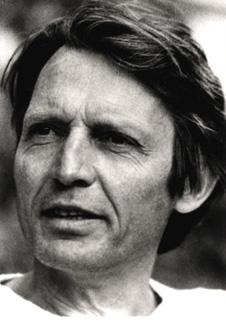- Home
- ChampdAction
- Research & development
- Production participation
- Artists in residence
- ChampdAction/LAbO
- Calendar
- ChampdAction/Studio
- Audio & video
- Press
- Newsletters
- Archive
- Coproducers/partners
- Contact
JEAN-CLAUDE RISSET

Born in 1938, Jean-Claude Risset sudied piano, harmony, counterpoint, composition with André Jolivet, and mathematics and physics at the Ecole Normale Supérieure. While he always wrote works for instruments, from his 1963 Prélude for orchestra to Filtres for two pianos, Phases for large orchestra, Triptyque for clarinet and orchestra, Escalas for large orchestra (2002), commissioned by Musica Viva and the Bayerischer Rundfunk, he is also known as one of the main pioneers of computer music, together with Max Mathews and John Chowning. In the sixties, he realized at Bell Laboratories imitations of instruments and acoustic illusions, analogous to the visual illusions that can be seen in etchings by Escher, for instance sounds which glide up endlessly, or which go down the scale but end up at a higher pitch. He implemented in Orsay the first system in Europe for sound synthesis. At the inception of IRCAM, Pierre Boulez asked him to head the computer department.
In works such as Little Boy, Mutations, Songes or Sud, Jean-Claude Risset takes advantage of synthesis to sculpt the sound, to inject expressivity and musicality into it - to composing the sound itself, beyond composition with sounds, and to play with time within the sound rather than arranging sounds in time. He has realized a number of mixed works in which synthetic sounds are tightly woven with instruments and voices: Dialogues, Inharmonique, Passages, Voilements, played by soloists such as Irène Jarsky, Jane Manning, Linda Hirst, Michel Oudar, Jean-Claude Pennetier, Georges Pludermacher, Mari Kimura, Roberto Fabbriciani, Pierre-Yves Artaud, Robert Aitken, Katrin Zenz, Michel Portal, Daniel Kientzy ... As composer in résidence at Media Laboratory, M.I.T., he implemented in 1989 the first Duet for one pianist, in which the pianist is accompanied on the same piano by a virtual partner sensitive to his or her playing. He pursues research on computer music at the Laboratoire de Mécanique et d'Acoustique of CNRS in Marseilles. Among other awards, he received the Ars Electronica Prize (1987), the Grand Prix National de la Musique of France (1990), the Ars nova Prize from Prague (1976), the EAR Prize from Budapest (1997), the Magisterium Prize from Bourges (1998), the Gold Medal of CNRS (1999). He is Chevalier de la Légion d'Honneur and Commandeur des Arts et Lettres. His works appear on twenty five compact disks, notably the monographic CDs INA C1003, WERGO 2013-50,
© 2004-2024 ChampdAction
